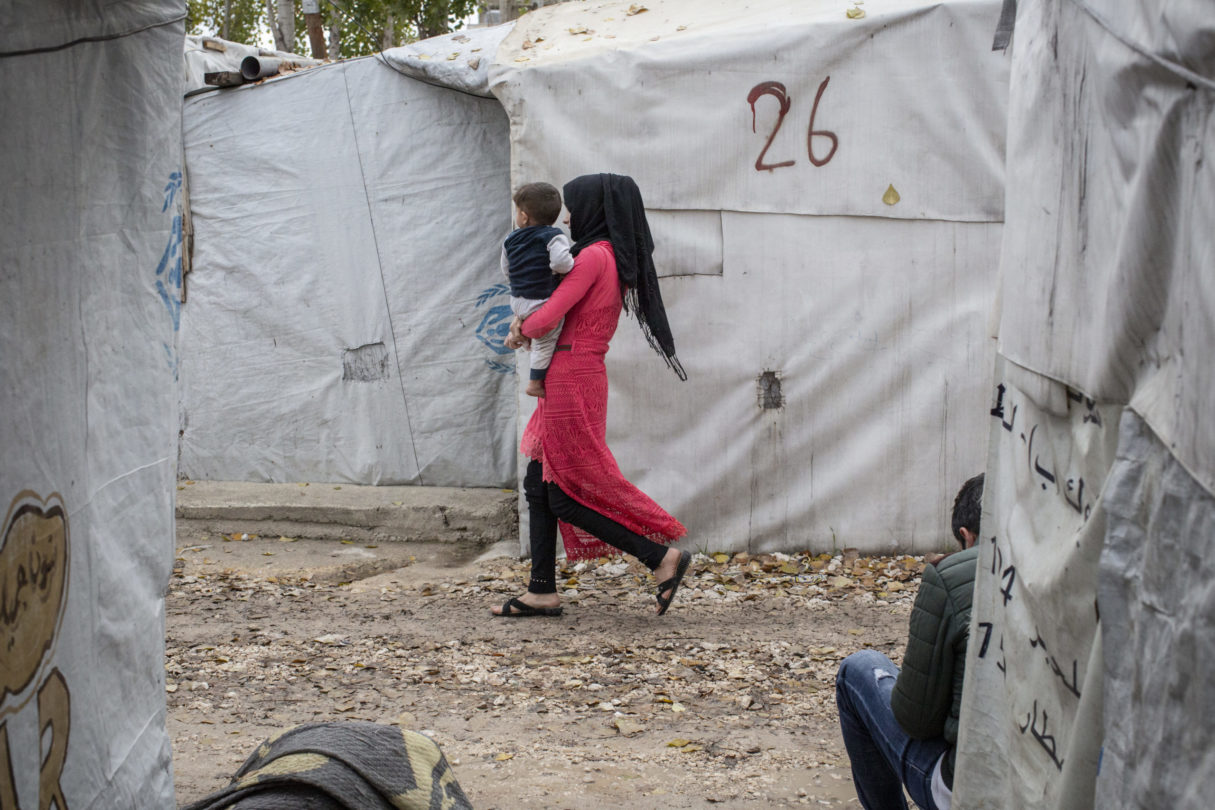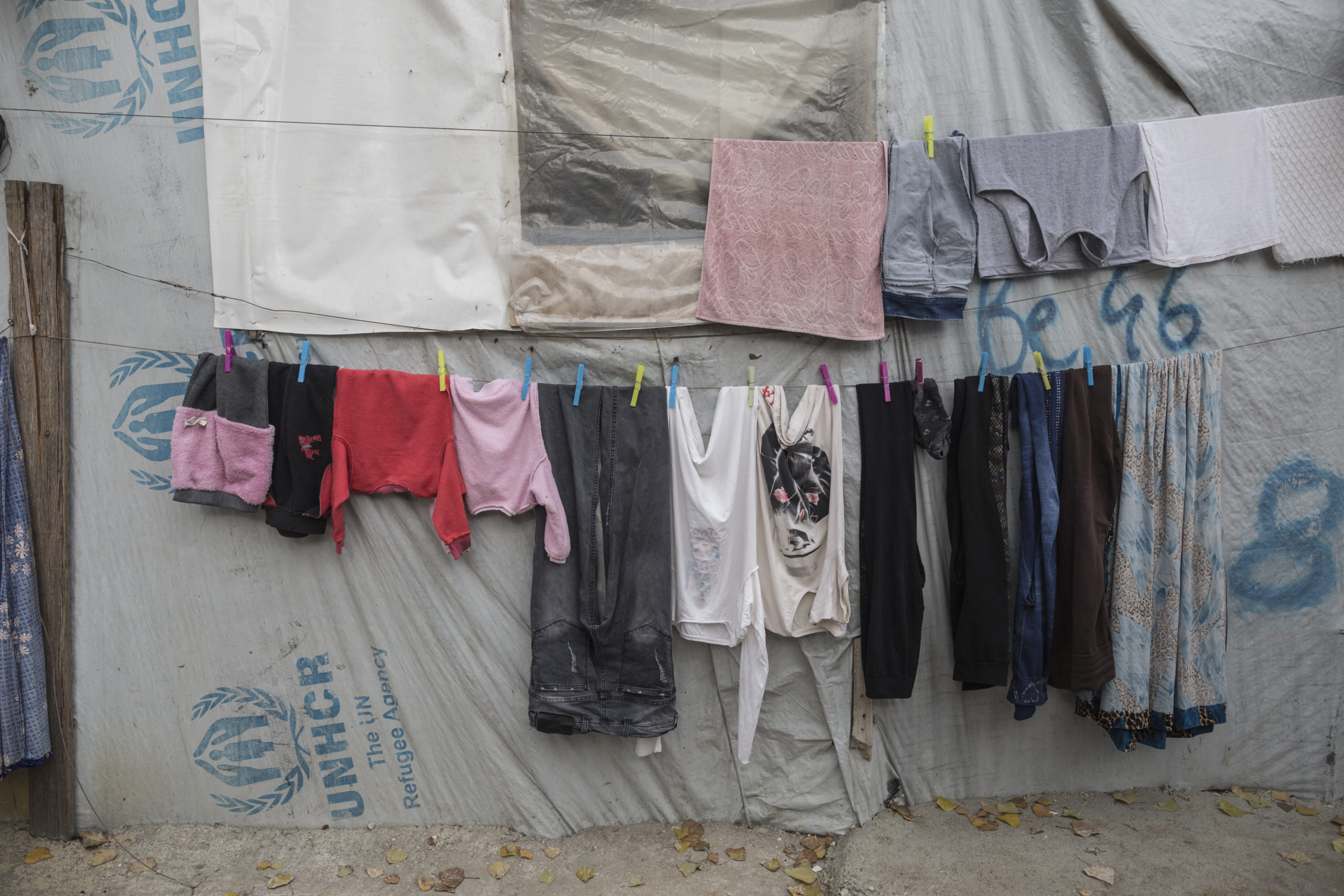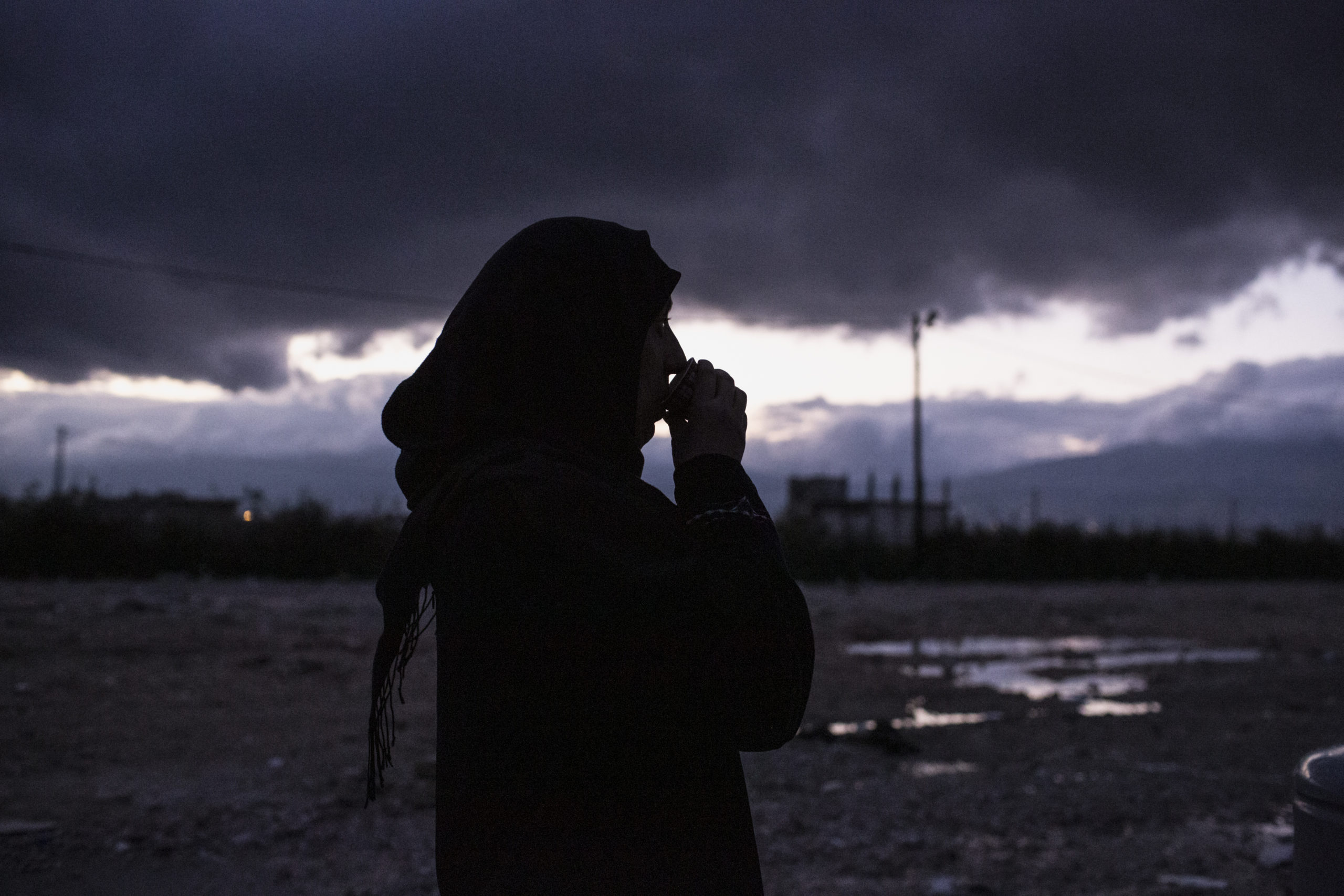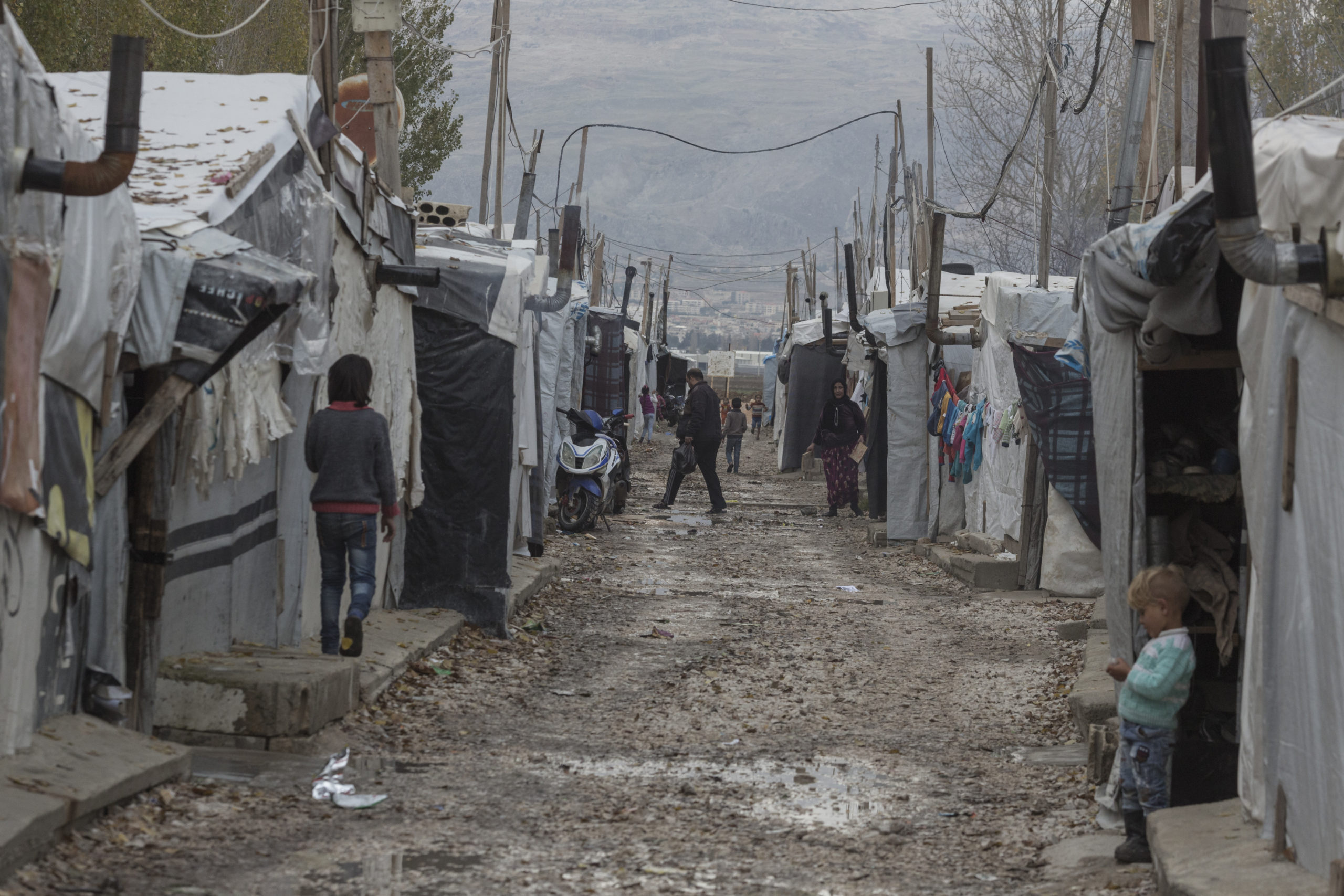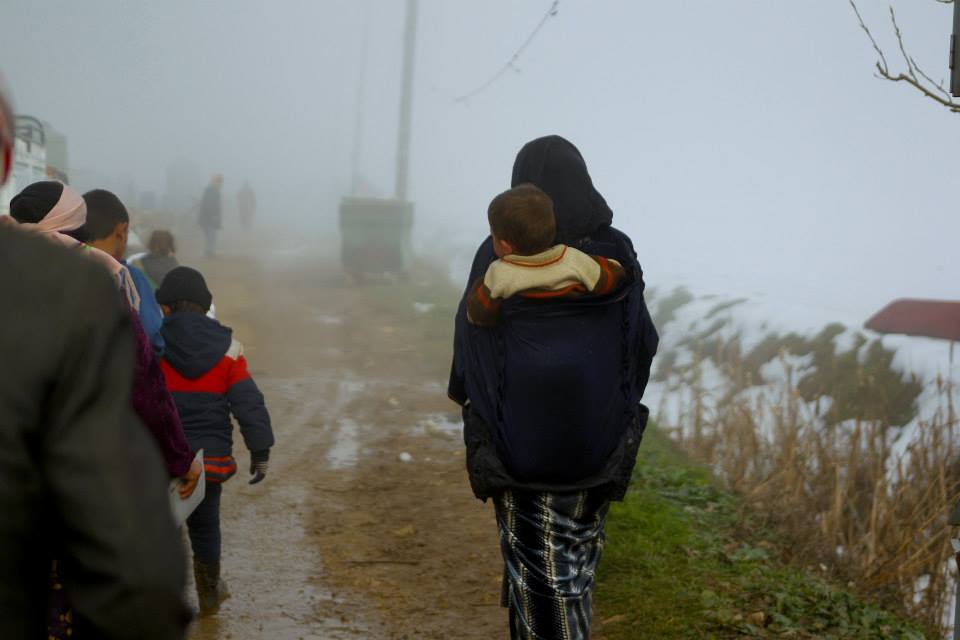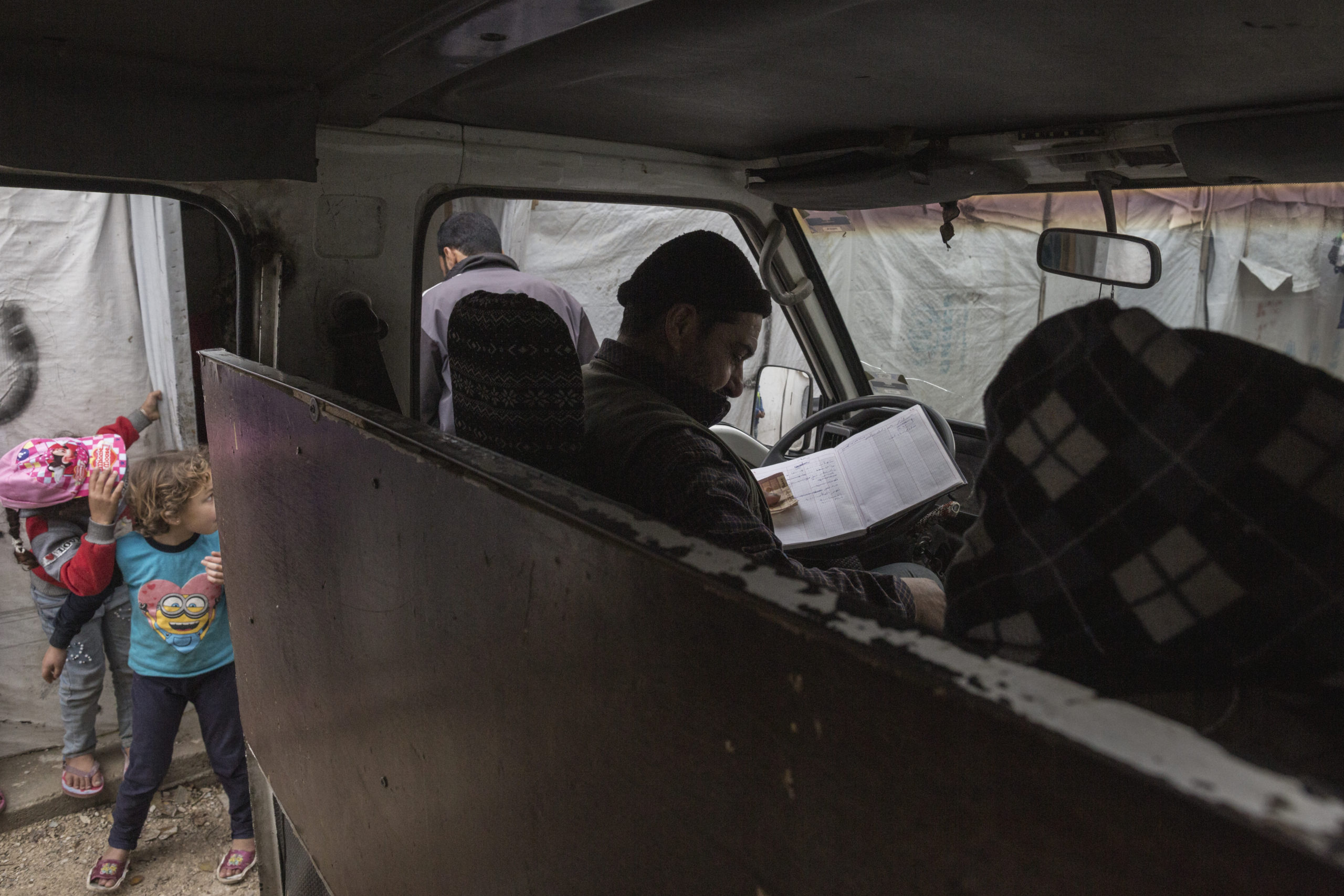Since 2011, more than 5.6 million Syrians have fled the country, leaving behind their homes, jobs, and schools in search of safety elsewhere.
Though Western countries are often preoccupied by limiting the arrival of refugees on the shores of Europe, the majority of Syrian refugees have sought shelter in neighbouring Turkey and Lebanon. Turkey is the biggest host country for Syrian refugees, with an estimated 3.3 million Syrians living there. More than one million others are based in Lebanon.
In addition to the 5.6 million Syrians who have fled the country, more than 6.2 million Syrians are displaced inside the country. More than half the population of Syria has been forced to leave their homes since 2011.
SNHR has documented 1,916 cases where returning refugees have been arrested by regime forces. Of this number, 784 remain in detention while 15 have died under torture, 11 of whom came from Lebanon
Life for many refugees in extremely difficult, in particular those who are living in refugee camps. In Turkey and Lebanon, many Syrians live in overcrowded camps, often unable to legally work. In Jordan, around 76,000 people live in the Zaatari refugee camp, the second-largest in the world. Forced to live impoverished, restricted lives, Syrian refugees also have to deal with rising xenophobia, stirred up by right-wing politicians who see them as an easy target. In recent months, officials in both Turkey and Lebanon have vowed to crack down on Syrian refugees, including by deporting some refugees back to Syria.
These forced returns, which have occurred in their thousands, are in violation of the international principle of non-refoulement, which says people cannot be sent back to places where they might be persecuted. Between the beginning of 2014 to August 2019, the Syrian Network for Human Rights has documented at least 1,916 cases where returning refugees have been arrested by regime forces. Of this number, 784 remain in detention while 15 have died under torture, 11 of whom came from Lebanon. Turkey has also been sending Syrian refugees back to Idlib, an active war zone.
Despite the evident risks returning refugees face from the regime, armed groups, and ongoing conflict, both Turkey and Lebanon persist in the deportations. The EU, a key funder of Turkey’s refugee programme, and the UN have remained largely silent.
As with all people, regardless of where they live, refugees are entitled to all the rights and freedoms laid out under international law. Perhaps the most famous of these are the rights enshrined in the UN’s Universal Declaration of Human Rights, which includes the right to life, freedom from slavery and torture, protection under the law, freedom from detention, and freedom of thought, opinion and assembly. The declaration also includes the right to freedom of movement and the right to seek asylum.
Beyond these rights, the international community also recognises the specific needs for protection of refugees. The leading agency for the protection of refugees is UNHCR, the UN Refugee Agency. A critical protection for refugees is the principle of not sending refugees back to a country where they might face persecution, assisting in the processing of asylum seekers, providing legal support, promoting arrangements to ensure refugees’ safety, promoting and assisting voluntary repatriation, and helping refugees to resettle.
Syria is a dangerous country for refugees to return to. The northwest of the country is under bombardment from regime and Russian forces who are killing civilians indiscriminately while claiming to only target rebel groups. In parts of the country not gripped by conflict, refugees risk arrest, detention, and torture by regime forces or forced conscription into the Syrian army. Extremist armed groups are also responsible for arresting and harassing returning refugees. Even those who make it back unmolested face difficulties. Refugees may return to find their homes looted, bombed, or appropriated by the regime while their towns and villages may be without basic services.
Arbitrary arrest and forced disappearance
Since the 2011 uprising, the Syrian regime has used arbitrary arrest, forced disappearance, and torture against its own people. To date, around 100,000 people are believed to be forcibly disappeared in Syria, many seen as opponents of the regime. It doesn’t take much to achieve this label. Those living in opposition-held or pro-opposition areas are often seen by the regime as enemies, people who condemned the regime’s brutality or engaged with humanitarian and human rights efforts (and this includes many refugees) are regarded with similar suspicion.
Over a five-year period, the SNHR documented 1,196 cases in which regime forces arrested returning refugees. 219 of these people were children. Of the arrestees, 784 remain in detention where they likely face the same torture, abuse, and neglect that has been widely reported by former detainees.
Detention of returning refugees has primarily occurred at border crossings, according to the SNHR. Three crossings in particular—Masna’ (Lebanon), Kasab (Turkey), and Nasib (Jordan)—have a high arrest rate. There have been several documented cases of refugees being told they have permission to return and then being arrested. Often they are told that permission was given by another branch of the security services who had not coordinated with the arresting branch.
Hasan Al Ahmad’s cousin Mustafa had lived in Turkey for five years, having fled the Syrian conflict. Suffering psychological issues from a disability he had, he made the decision to return to Syria—making a settlement with regime officials at the Kasab border crossing on 24 April 2019. Presumably believing himself to be safe, he headed for his hometown of Hama where he was arrested by militiamen manning a regime checkpoint. A week later he was transferred to another detention facility. Hasan says the family haven’t heard from Mustafa since.
In September 2017, Loay was arrested at the Syria-Lebanon border. Nine days later, the SNHR learned he had died under torture in a regime detention centre.
Similarly grim fates have befallen refugees who were forcibly returned. One Syrian told Human Rights Watch that Lebanese officials arrested his brother in late May 2019 and held him in detention. They told the man his brother wouldn’t be deported but instead sent to Beirut and released. In mid-June, the man received a call from someone who had been detained with his brother in Syria. He told him his brother was being held in Tartous and was due to be transferred to Damascus. The man has not had any news since.
The story of Loay Thalja, another Syrian refugee, provides a tragic insight into what can befall arrested refugees. In September 2017, Loay was arrested at the Syria-Lebanon border. Nine days later, the SNHR learned he had died under torture in a regime detention centre.
During interviews conducted with 13 Syrian refugees in Lebanon, all told The Syria Campaign that they were afraid of returning to Syria. The group of women gave different reasons for their fear ranging from terror that their sons would be conscripted, feeling insecure after enduring years of conflict, the dire living situation they would face, their homes being destroyed, family members being arrested or likely to be arrested, and a refusal to live under the murderous Assad regime.
The views of returned refugees
In November 2019, The Syrian Association for Civil Dignity surveyed refugees who have returned to the country. The survey results showed that most returnees would try and leave again if the opportunity presented itself, and would also not recommend to others to return. Source: Between Hammer and Anvil
Would you try to leave Syria again if you had the chance?
Do you recommend others to return to Syria?
Conscription
Facing a shortage of human capital, the regime has adopted a strategy of press-ganging Syrian men into the army and sending them into lethal situations.
A report by the Syrian Association for Citizens’ Dignity found that military conscription was the fourth most common reason returning refugees gave for wanting to leave Syria again. Facing a shortage of human capital, the regime has adopted a strategy of press-ganging Syrian men into the army and sending them into lethal situations.
Abdul Mu’in defected from the Syrian military in 2012, settling in neighbouring Lebanon along with his brother, who was also a defector. In September 2018, his brother was stopped by Lebanese officials at a checkpoint who told him they would confiscate his papers unless he agreed to be “voluntarily” repatriated. The brother agreed and returned to Syria in December 2018 whereupon he was arrested by regime officials and imprisoned for three months. On his release he was forced to rejoin his regiment and sent to fight in Idlib. Three other former soldiers, who returned with Abdul’s brother, were allegedly sent to the notorious Sednaya Military Prison.
Deportations to Idlib
Turkey’s border with Syria stretches across most of the northwest of the country, ranging over both Idlib and Aleppo provinces. This area is currently under fierce bombardment by the Syrian regime and Russia who claim to be targeting armed extremist groups on the ground. In reality, most of their casualties are civilians. It is into this chaos that Turkey is deporting many Syrian refugees.
In October 2019, Amnesty International released a report featuring the stories of 20 people who had been forcibly deported by Turkey to Syria between May and September 2019. All 20 said they were sent to either Idlib or Aleppo provinces, and that the deportees included children and families.
During one call Amnesty made to a returned refugee on 13 October, a loud noise was heard and the call abruptly ended. When the researchers reconnected with the man, Farid, he explained that four shells had just landed near his house, something that he said he was now used to. Another deported refugee, a Syrian Christian named John, was detained for a week by the armed extremist group Hayat Tahrir al-Sham when he was sent back to Idlib. He told Amnesty: “It was terrible… It was a miracle I got out alive.”
Aerial attacks and assaults by armed groups are not the only dangers refugees face when they’re sent back to Idlib. The province, which is home to more than 3 million people, is in the grip of a humanitarian crisis, exacerbated by Russia and the regime’s targeting of schools, hospitals and homes. Hundreds of thousands of people lack access to adequate food, water, and shelter while medical care is increasingly difficult to come by. It is difficult to see how returning refugees can forge a future in such a troubled environment.
Housing, land and property issues
Outside of northwest Syria, life is still difficult for returning refugees. With the Syrian conflict now into its ninth year, parts of the country have been bombed into rubble with rebuilding often only happening in pro-regime areas. Refugees sent back to their hometowns may find them changed beyond recognition, and their homes destroyed. The Syrian regime has dropped 75,000 barrel bombs on Syria, the equivalent of two nuclear bombs in terms of destructive impact, according to the SNHR.
The absolute power the regime wields over Syria has allowed it to enact a series of draconian laws permitting officials to confiscate civilians’ property. Law 63 authorises the seizure of terrorists’ property—which includes people who do not support the regime. Legislative Decree 11 ended the maintenance of real estate records during the conflict while Decree 12 required excessive amounts of paperwork for someone to prove ownership of their home—something that many refugees might lack.
Perhaps the most infamous of the laws, Law 10, establishes regulatory areas throughout Syria, allowing the regime to restructure any part of Syria that it wishes, including residential and commercial property.
Outside of these laws, there has also been widespread looting and vandalism of Syrian property both by regime forces and armed extremist groups. In 2018, one Syrian family experienced the full impact of this. Mehyar al Salem had been living in Turkey since 2015 but decided to try and return to Syria due to his family’s financial hardship. In mid 2018, his wife travelled to their hometown of al Mayadeen to inspect their house only to find that it had been appropriated by an Iranian militia fighter who told her he had bought it. When she disputed this, the man threatened to kill her husband if he returned.
“No one can guess what will happen to a refugee who wants to return to Syria. He may be allowed to enter the country. He may be arrested after a period of time without explanation, as is usual for the security services. He may disappear later, and we might get information that he died due to torture. It is impossible to discover whether the refugee is wanted by the security services; this is a very complicated process that requires huge amounts of money. We warn refugees of the risk of returning, and call on all states to respect international law and not forcibly return anyone. If they do, that state will bear responsibility for what might happen to them.”
Fadel Abdul Ghany, Chairman of the Syrian Network for Human Rights (SNHR)
Hostile environments
Life as a refugee is difficult. Across the world Syrian refugees face racism, inequality, and the difficulties that come with adapting to life in a new country. Many are suffering from the trauma of having lived through conflict, and some bear the physical scars of violence, often as a result of torture. Refugees may be living in tents or insecure accommodation and may lack permission to work—forcing them into financial hardship or illegal labour. With many Syrian refugees unable to return because of the dangers they would face, it’s worth taking a closer look at what life is like for Syrians in three of the biggest host countries.
Lebanon
Lebanon has hosted more refugees per capita than any other country in the world. Now it seems Lebanon’s generosity has ended. The country has been suffering from a declining economy and rising unemployment, which some politicians have tried to blame on the influx of Syrian refugees—1.5 million entering a country with a population of 4 million.
On 13 May 2019, the government announced plans to deport all Syrians who entered Lebanon illegally after 24 April. Though it had made similar threats in the past, this time it took action and began deporting hundreds of refugees, in violation of the international principle of non-refoulement. Between 21 May and 28 August 2019, Lebanon deported 2,731 refugees. These deportations may also impact refugees who arrived in the country before 24 April. Since 2015, Lebanon has prevented the UN from registering refugees, meaning that many lack the paperwork to prove when they arrived.
In July 2019, officials demolished 20 refugee shelters and told refugees living in the Bekaa Valley and the border town of Arsal to replace their concrete walls and roofs with less protective materials or face demolition
Lebanon’s hostility extends beyond deportations. In July 2019, officials demolished 20 refugee shelters and told refugees living in the Bekaa Valley and the border town of Arsal to replace their concrete walls and roofs with less protective materials or face demolition. Officials have also arrested refugees in camps for illegally entering Lebanon and cracked down on businesses employing people without work permits. Lebanon has also reportedly tricked Syrians into returning by asking them to sign forms asking them if they “wish” to return to Syria.
Sectarian divisions also worsen the tensions between Lebanese people and Syrian refugees. The latter are perceived as likely to be conservative Sunni Muslims at odds with Lebanon’s culture. Xenophobic politicians have also claimed that, like Sunni Muslim Palestinians, the Syrian refugees in Lebanon will not leave.
Turkey
Like Lebanon, Turkey has also begun cracking down on Syrian refugees. Hosting the largest number of Syrian refugees in the world, the country was initially praised for its generosity, but this has collapsed in the face of recession, rising unemployment, and inflation in addition to the ruling AK Party losing the Istanbul mayoral election. The chosen candidate, Ekrem Imamoglu, has spoken out against the number of refugees Turkey has accepted, and his win was seen as a rebuke to the government’s immigration policy. Soon after Imamoglu’s victory, the hashtag #SuriyelilerDefoluyor—”Syrians f—k off”—began trending on Twitter.
Soon after Imamoglu’s victory, the hashtag #SuriyelilerDefoluyor—”Syrians f—k off”—began trending on Twitter.
This sentiment has been expressed, albeit in politer forms, by pro-government media, which published 918 anti-Syrian pieces in 2018, down from 1,148 in 2017. Politicians have also echoed Imamoglu’s views and taken action against refugees. Earlier this year, Turkey began deporting hundreds Syrian refugees after ordering that they return to the Turkish cities that issued their papers. Local activists began reporting that police were arresting refugees as they travelled back to these cities and were forcing them to sign deportation documents. Refugees without papers were similarly deported, despite the fact that Istanbul and nine other provinces stopped issuing these documents in 2017.
In December 2019, a report from Amnesty identified 20 cases of illegal deportations by the Turkish authorities between July and September 2019. Interviewees said they were beaten or threatened into signing “voluntary” return papers or deceived into signing by being told the document was for something else.
Elsewhere, officials have been cracking down on Syrians working without the proper permits, fining their employers or forcing the closure of their businesses. Checks for papers, often in bus and train stations, are frequent, forcing many people to stay within their homes and not try to access essential services like healthcare. In Gaziantep, Syrian shop owners were told to paint over their Arabic signs as local police decided to enforce a law that had been ignored for eight years.
Jordan
Around 665,000 Syrian refugees live in Jordan, part of a Syrian population of 1.3 million. Since 2016, the country has issued 125,000 work permits to Syrians.
Like Turkey and Lebanon, Jordan has been impacted by the large number of Syrian arrivals. Its planning ministry has said that education, health, and water infrastructure has been strained with water use up by 20%. Schools are also having to run separate morning and afternoon sessions to cater for all the refugee children.
These problems have been exacerbated by donor fatigue. In December 2019, Jordan said foreign donors had contributed just 21 percent of the $2.4 billion needed for refugee spending under the 2019 Jordan Response Plan. Some of this money may be needed for refugee camps like Zaatari, the world’s second-largest refugee camp, which is home to 76,000 Syrians.
In December 2019, Jordan said foreign donors had contributed just 21 percent of the $2.4 billion needed for refugee spending
Jordan seems keen for Syrian refugees to return and opened its border with Syria in October 2018. Despite this, only 34,000 people have gone back and Jordan has hitherto refused to follow Turkey and Lebanon in forcibly deporting people. The 34,000 is an increase, however, in previous figures for returns, something that has been attributed in part to the poor economic situation some refugees face who are forced into low-paying jobs.
Though life in Jordan is difficult for many refugees, the country has so far avoided sliding into hateful rhetoric and xenophobic policies. Though it is experiencing a weak economy and high unemployment, Jordan continues to be relatively welcoming of Syrian refugees, particularly when compared with Turkey and Lebanon
Every single Syrian refugee has a story to tell. Here are a few stories that show the dilemmas faced by Syrian refugees, how face pressures to return but also huge dangers if they do choose to go back.
Marwa: “I do not dare to return!”
Here Marwa talks about how her fear of arrest by the security forces is preventing her from going back to Syria. Marwa also talks about the tough circumstances faced by refugees in the camps in Lebanon. Despite these challenges, she also shares her hopes for the future of her children. Marwa is a pseudonym to protect her identity.
Khadija: “You look around and you just see destruction”
Khadija tells the story of how she was forced to flee Syria by ISIS, the relative freedom she feels now in Lebanon, and why she cannot go back to Syria. Khadija is a pseudonym to protect her identity.
Mayada: “How can I take my children back to war?”
Mayada tells the story of the bombings of her neighbourhood and the arrest and disappearance of her husband forced her to flee from Syria. Mayada’s husband remains missing to this day. Mayada is a pseudonym to protect her identity.
For more stories of Syrian refugees, check the Half of Syria Facebook page.
Why can’t refugees return to Syria?
We interviewed a group of Syrian refugees in Bekaa in Lebanon in November 2019 and asked why they can’t go back. This is what they told us.
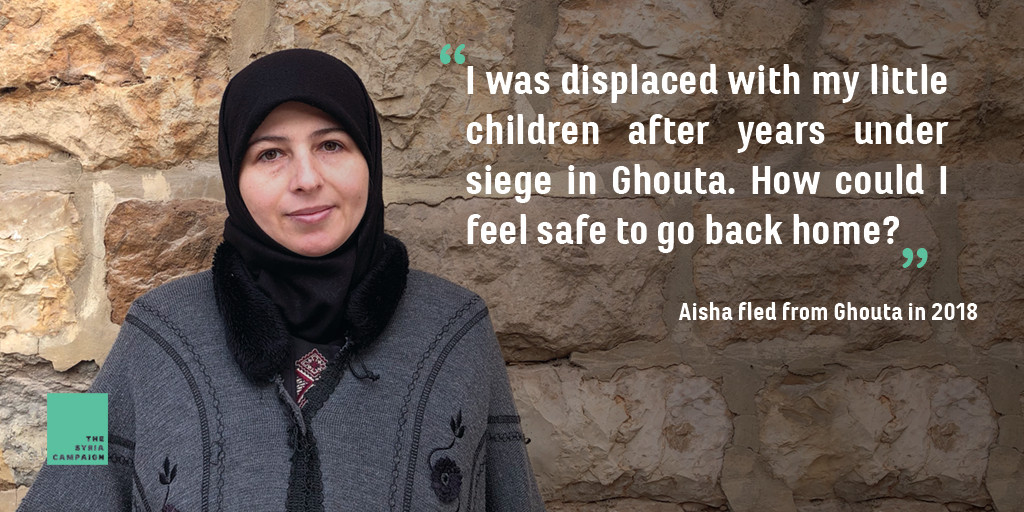
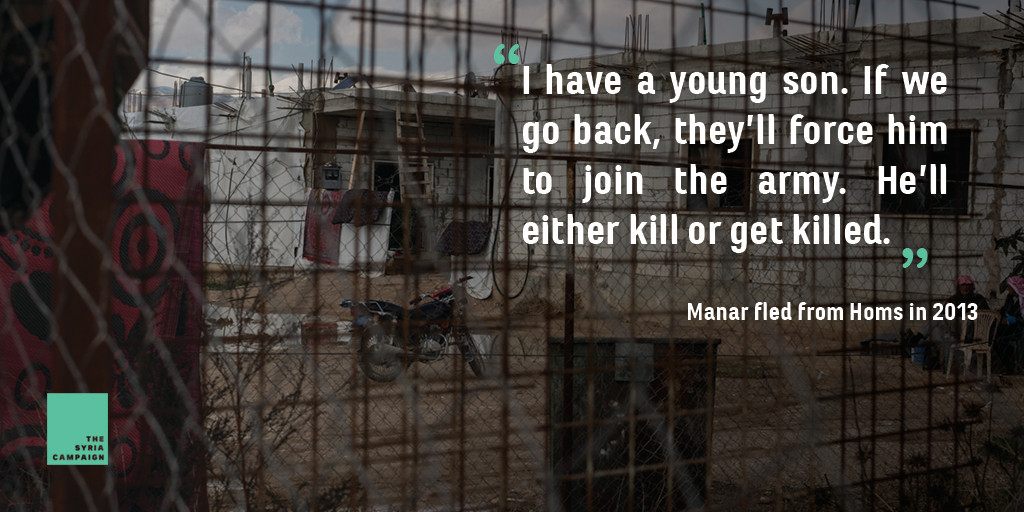
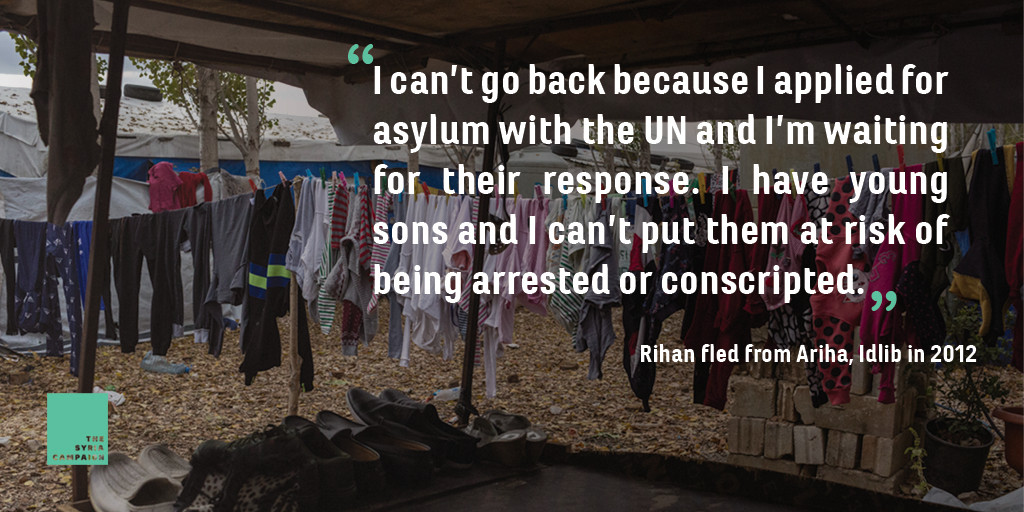
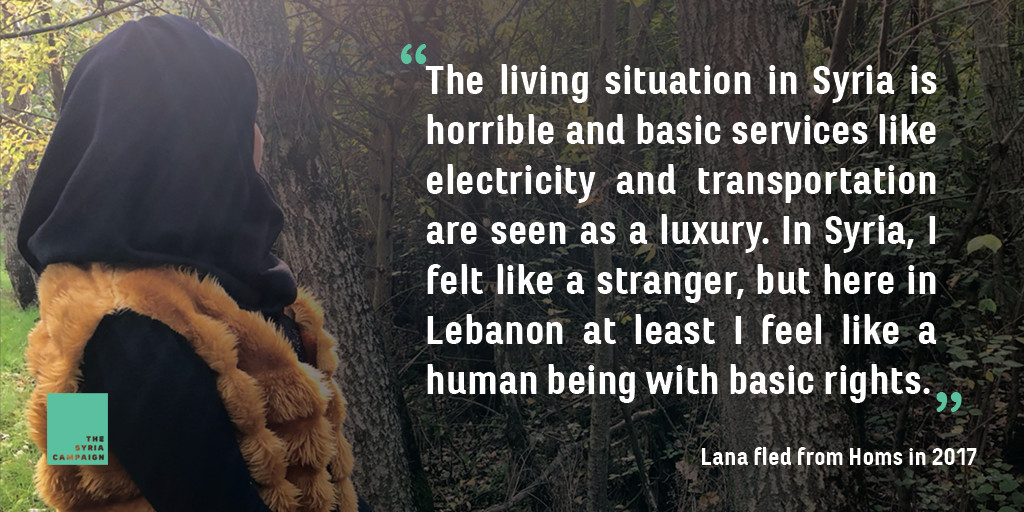
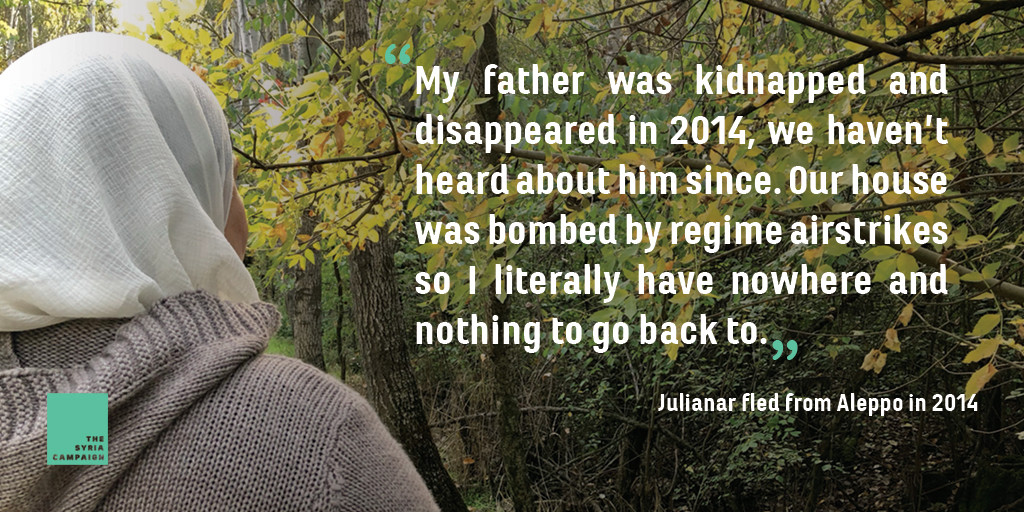
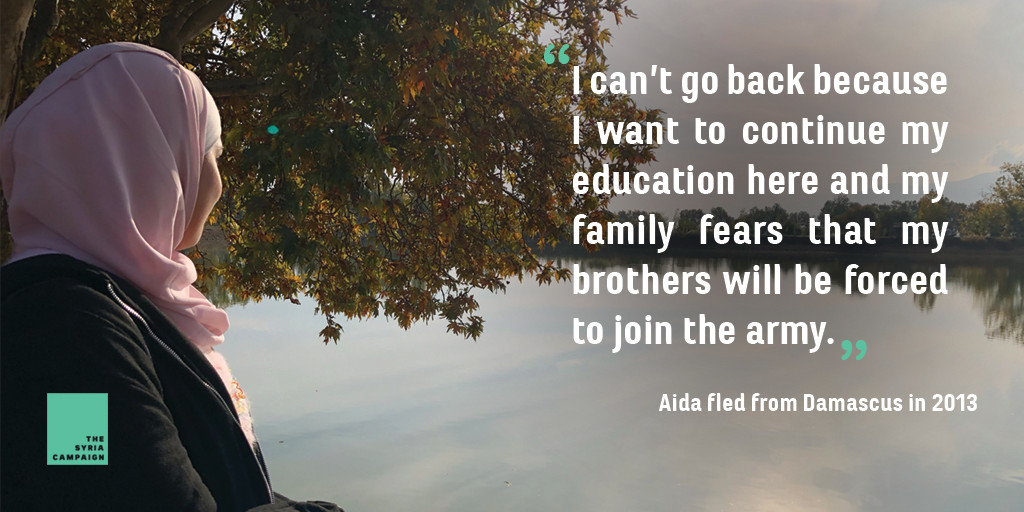
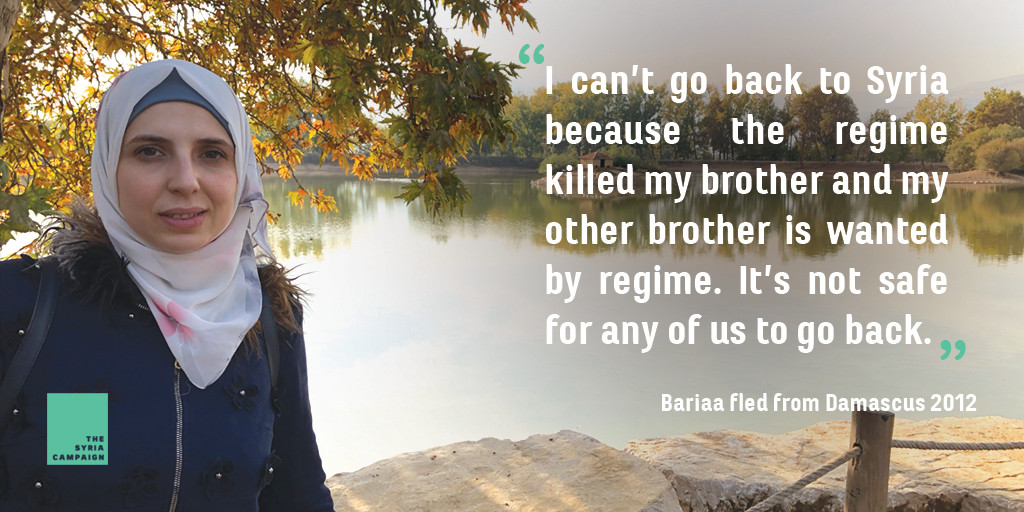
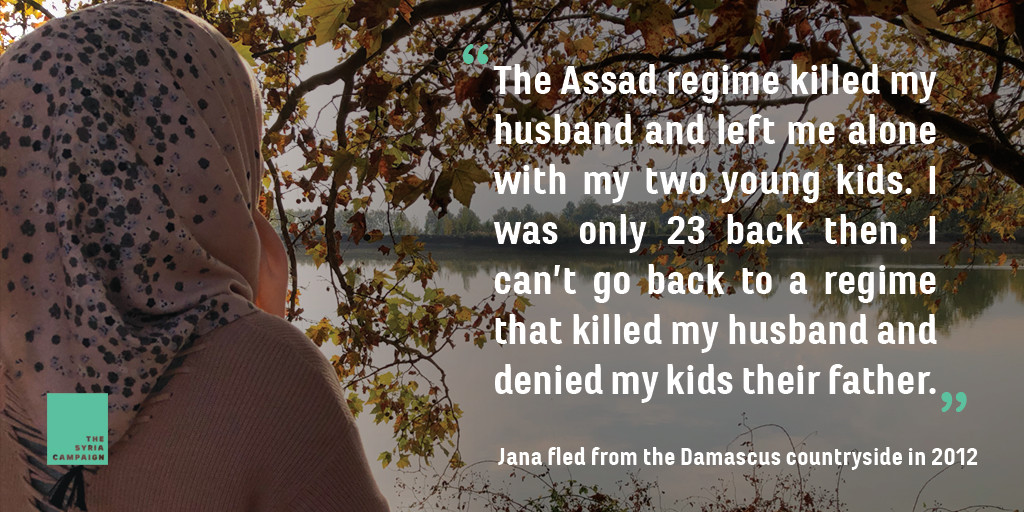
News and updates
STOP ILLEGAL FORCED RETURNS TO SYRIA
More than 6 million Syrians have fled the country. Most are still living in neighbouring countries: Lebanon, Turkey and Jordan. Many of these refugees have found ways to settle in their new countries and found sanctuary from the war that drove them from their homes.
However – these refugees now face a new danger: forced return to Syria. Over the past year, Lebanon and Turkey have stepped up forced deportations of refugees back to Syria.
Forcing refugees to return home is in direct contravention of international law.
Some refugees are being sent to Idlib where they are at the mercy of extremist groups and bombing from the Syrian regime and Russia. Others face the risk of arrest by the Syrian regime, who view returning refugees with distrust. Nearly 2000 returning refugees have already been arrested. 784 of these remain in detention to this day.
The EU and UNHCR must stand up to protect refugees. They fund large scale programmes to help Syrian refugees, yet are turning a blind eye to cruel and illegal detentions.
The international community must do more to help refugees. And this must start with ensuring their most basic rights are protected: to security and dignity. This means prevent forced returns.
Please write to the UNHCR and the UN and demand that they:
Stand up for Syrian refugees. Nobody should be forced to return to a country at war against their will. It is your responsibility to ensure that the programmes you support do not in any way contribute to cruel and illegal deportations. You must use your influence to uphold international law and stop forced refugee returns. All refugee returns must be voluntary, safe and dignified.
Contact details for UNHCR: https://www.unhcr.org/uk/contact-us.html
UNHCR Lebanon: https://www.unhcr.org/uk/lebanon.html / Email: [email protected]
UNHCR Turkey: https://www.unhcr.org/uk/turkey.html / Email: [email protected]
Articles
Analysing Refugee Host Community Narratives on Social Media. Build Up.
Between Hammer and Anvil: Motives and Experiences of Syrians Forced to Return to Assad-Held Areas. The Syrian Association for Citizens’ Dignity
Dignity and Displaced Syrians in Lebanon. Overseas Development Institute
Lebanon Is Sick and Tired of Syrian Refugees. Foreign Policy
Sent to a War Zone: Turkey’s Illegal Deportations of Syrian Refugees. Amnesty International
Syria Emergency. The United Nations High Commissioner for Refugees (UNHCR)
Syrians Deported by Lebanon Arrested at Home. Human Rights Watch
The Syrian Regime Continues to Pose a Violent, Barbaric Threat and Syrian Refugees Should Never Return to Syria. The Syrian Network for Human Rights
Turkey’s Radical Plan: Send a Million Refugees Back to Syria. The New York Times
Syria’s new property law. Human Rights Watch
Organisations
Here is a list of some organisations active on refugee return. Please contact us if you would like to suggest more groups to add to this list: [email protected]
Syrian Association for Citizens’ Dignity: SACD support refugee rights and have provided reporting and analysis of the human rights situation inside Syria, which has been hard to access for many organisations.
Access Center for Human Rights: A Syrian organization, founded in Lebanon, now based in Paris. ACHRC work on improving the situation of refugee’s rights in Lebanon. They do this by documenting the violations of Voluntary and forced deportations from Lebanon.Life Institute: Life Institute is a Lebanese organisation that supports Syrian refugees by publishing statements and research related to the refugees situation in Lebanon.
Life Institute: Life Institute is a Lebanese organisation that supports Syrian refugees by publishing statements and research related to the refugees situation in Lebanon.
The Legal Agenda: A group of jurists and journalists in Lebanon, producing human rights information materials and research related to human rights and social and economic rights. Support refugees by publishing research on violations against refugees in Lebanon.
Sawa for Development and Aid (SAWA): SAWA is a Syrian organization based in Lebanon. It was founded in December 2011 as a spontaneous response to the arrival of the first 40 Syrian families displaced from Syria into the north of Lebanon. SAWA are specialized in development and relief work, though they also have a research department that has published research on the refugee crisis.
Refugees Partners: An independent research-based initiative implemented in coordination between the Lebanese Economic Association (LEA) and the Syrian Centre for Policy Research (SCPR), Refugees Partners aims at encountering negative sentiments against refugees in Lebanon and encouraging policy reforms that protect their rights.
11.11.11: 11.11.11 is the coalition of NGOs, unions, movements and various solidarity groups in Flanders (Dutch speaking Northern part of Belgium). It combines the efforts of about 60 organizations and more than 20,000 volunteers. 11.11.11 has published several reports on the refugee return issue.
Crisis Action: Crisis Action works with individuals and organisations from global civil society to protect civilians from armed conflict. Syria is one of their key focuses.
Adopt Revolution: A German-Syrian initiative, supports civil self-organization against the Assad dictatorship and religious fanaticism. Strengthen projects that create perspectives for peace and work for a life in freedom and dignity.
ALEF (Act For Human Rights): ALEF – Act for Human Rights is a Lebanese non-profit, non-partisan human rights watchdog organization that works on documenting, and promoting human rights violations and values in Lebanon.
